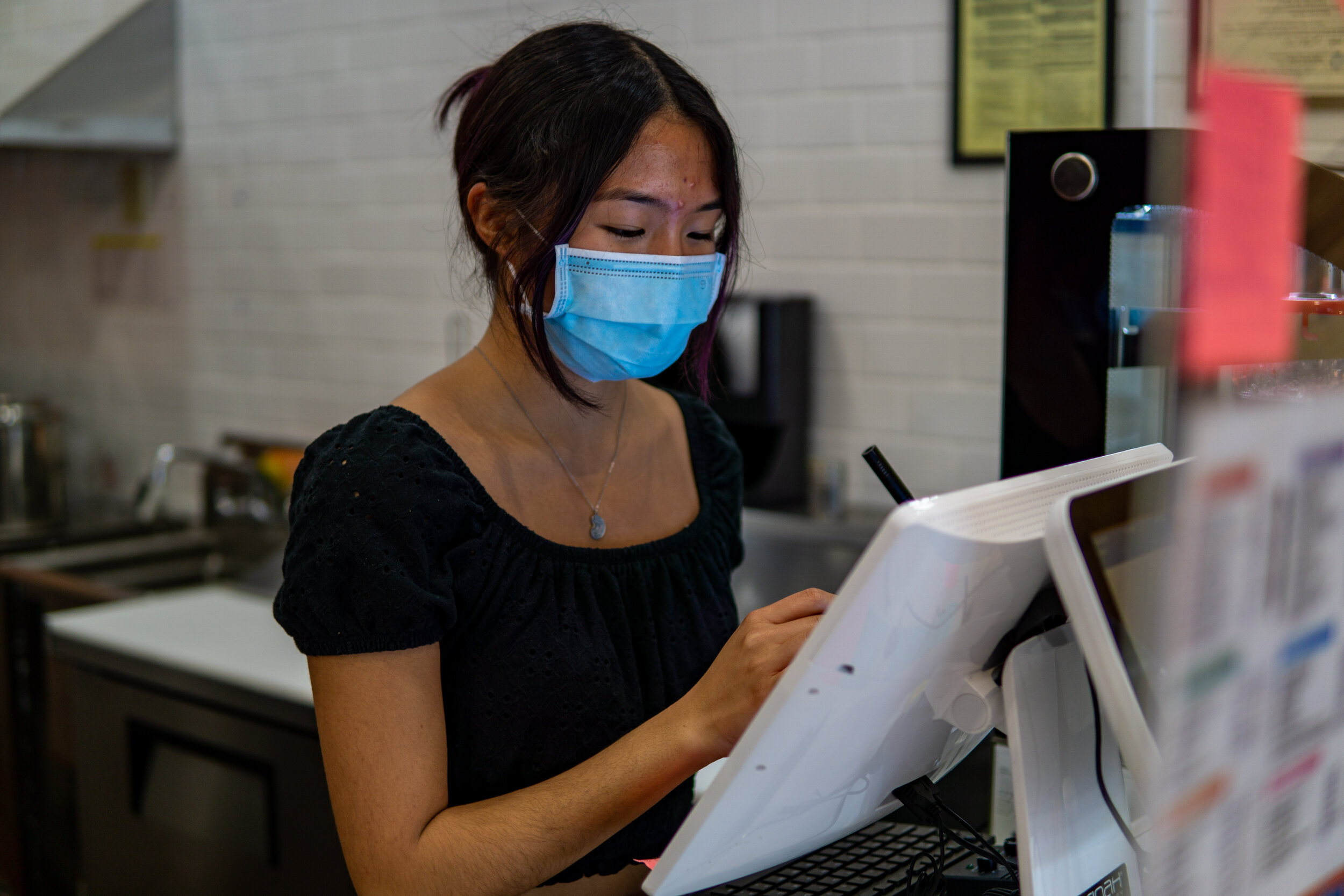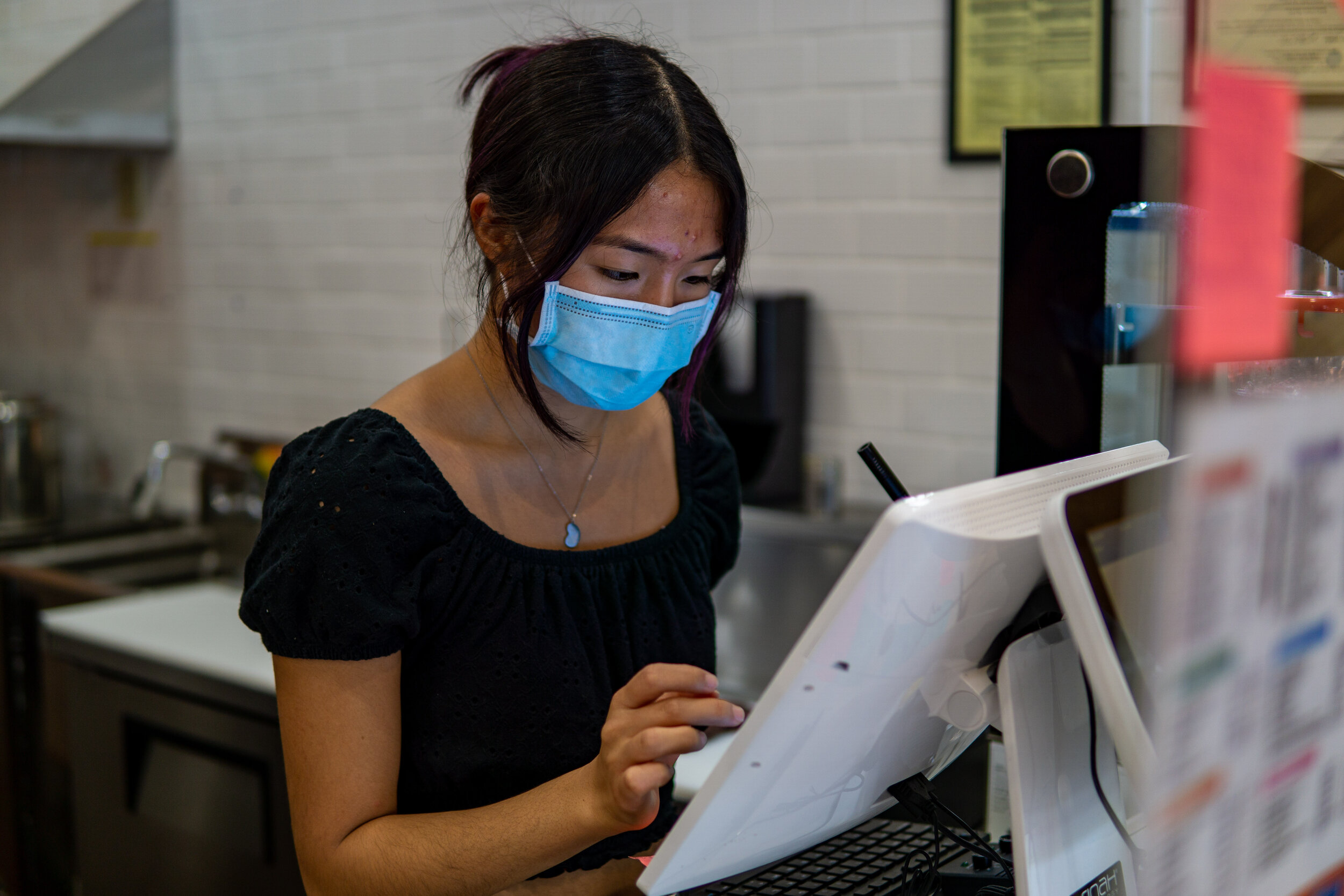Working students at Northview
How three Northview students balance school and workPhotos by Kush Santosh, Staff Writer
Anshi Vajpayee, Opinions Editor & Sydney Mulford, Staff Writer
17-year-old senior Isha Jayadev begins her school day like every other Northview student. She wakes up promptly at 7 a.m., attends her morning classes, and regularly stresses over tests and quizzes. However, right after her fourth-period class, Jayadev begins her double life as a barista at Starbucks.
Like many other Northview students, Jayadev participates in Work-Based Learning, a program led by Stephanie McCall, the career technology department head, to help promote relevant experience to better prepare students for entering the workforce. Jayadev is one of many working students; according to CNBC, just over 35 percent of teens between the ages of 16 and 19 are part of the workforce. As part of Work-Based Learning, eligible Northview upperclassmen who have fulfilled most of their graduation requirements may leave school immediately after 4th period and work a minimum of 10 hours a week.
Jayadev is not the only working student at Northview, however. Between working part-time, attending classes, and filling out college applications, Jessica Luu, a senior working at TeaTop Johns Creek, has learned the importance of organizational skills and time management.
“You definitely have to plan ahead,” Luu said. “As soon as you get your schedule, you have to see what else you have going on in terms of school and then plan around that.”
Along with planning ahead, Luu agrees that the general structure of working a service job and interacting with customers on a day-to-day basis has helped further her interpersonal skills. She finds herself utilizing the skills learned through her job in other parts of her life, including club leadership and other personal, potentially stressful, situations.
“The situations I deal with, like rude customers once in a while, have taught me how to deal with situations with my friends and people outside of school,” Luu said.
Jayadev and Luu agree that productivity is key. To better manage their time, both will try to maximize their productivity on days they are not working and have extra time.
“I have a Work-Based Learning program, so I don’t take up too much time after school working,” Jayadev said. “I also work with my manager to reduce hours if I’m really stressed.”
Meanwhile, Emylin Yu, a senior working at Hansel and Gretel, approaches effective time management by finishing her schoolwork at school itself along with avoiding procrastination. She also described the importance of planning her work schedule around when her major assignments and tests are.
“You have to not procrastinate because if you have a lot of work, you won’t have time after you come home,” Yu said.
Working outside of school has pushed Jayadev, Luu, and Yu to want to work during college as well. Yu feels that if she remains in-state, she will choose to stay at Hansel and Gretel, while Jayadev takes note of Starbucks’ flexible transferring program for any university she chooses to attend. In fact, working outside of school has helped Luu in choosing a future career in business or marketing after she experienced the behind-the-scenes of starting a new business shortly after TeaTop’s recent opening.
“This location just opened literally in July, so I got to see how they how it dealt with certain things regarding the starting of a business,” Luu said. “That in itself is really interesting to me.”
While learning to balance school and work, Jayadev, Luu, and Yu have also learned other skills that are applicable to their lives outside of school. Given Johns Creeks’ high Korean American population, Yu finds herself speaking more in Korean at Hansel and Gretel even though her overall usage has declined after moving to the United States.
“You have to be kind of good at making conversation because if they ask you something, you have to respond politely,” Yu said.
Working students believe, in the long run, the benefits of working outside of school outweigh the minor setbacks that sometimes accompany working a stressful job. Originally, Jayadev applied for a job at Starbucks to earn money to use on extra expenses. However, now her money goes into her savings account towards her education.
“A lot of people, especially at Northview because it's so rigorous, are hesitant towards [working at school],” Luu said. “You should definitely go for it; stuff that you learn in the workforce is a completely different set of skills that you don't learn at school.”






